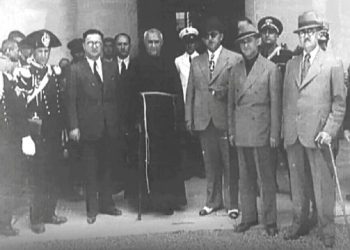By Arben Pustina
Part eight
-Rrok Gera, a proper statesman –
FORWARD
Memorie.al / This book aims to convey to the public the image of a perfect man, who lived in other times, but who was the best example, not only of what an ordinary man can represent, but, next first, as an example of a noble, distinguished, omniscient and, above all, honest statesman. Having in his genes the noble virtues of his origin, being formed as a personality in a wonderful environment, such as Shkodra at the beginning of the 20th century, and graduating from one of the most prestigious universities in Europe, such as that of In Vienna, Rrok Gera had all the potential to be one of the important figures who gave rise to a rapid development through comprehensive reforms in Albania in the 30s of the last century.
This development reached its peak with Mehdi Frashër’s government, considered perhaps the best Albanian government of all time, formed for the most part by non-political persons, among who was Rrok Gera. For 10 years, or more, as a minister or in other high state functions, he worked with conviction that he was walking on the right path for the consolidation of the Albanian state, a process for which he said he had no time to lose. Economist, financier, diplomat, lawyer, Gera was a specialist who advanced towards the top with his professionalism in an environment where the old factions, which were almost dominant in politics and governance, lost ground in front of young and educated people good.
Continues from last issue
RETURN TO ALBANIA AND ACTIVATION IN THE STATE ADMINISTRATION
Even in the justifying report of the draft law for the creation of the office “Chemist controlling alcohol and alcoholic beverages”, Rrok Gera emphasized that: “The creation of this office is not necessary; in order to have the alcohol factories under stricter control because we believe that alcohol revenues are too much.” After the approval of the relevant project-decree-law, in a letter dated 28.08.1936, Minister Gera proposed to the Presidency of the Ministerial Council that Mr. Tush Kakarriqi and, if the Council found this proposal suitable, then forwards it to the King to decree it. As you can see, for the employment of this specialist chemist, a draft law was drawn up, a justifying report was forwarded to the parliament, it was debated in the parliamentary session and the King signed the relevant decree.
On October 14, 1936, the agreement between the Albanian government and the ‘Banco di Napoli’ was signed in Tirana for the financing of works for the modernization of the Port of Durrës. The agreement signed by the Minister of Finance, Rrok Gera, and the General Director of Banco di Napoli, Giuseppe Frignani, consisted in the granting of two loans: one of 1,735,000 fr. the other gold of 2,000,000 fr. gold. According to the press comments of the time, the agreement was very favorable for Albania: only with 1% interest and the loans were amortizable: the first with 25 six-month installments and the second with 8 annual installments. The amount of loans would enable the full realization of the project of engineer Luiggi, parts of which had already been realized, with the aim of making the Port of Durrës a modern port, able to meet the needs of the time.
In another initiative of his, Rrok Gera drafted a draft [1] decree-law “On the formation of the Institute for the Administration of State Manors”. In the letter dated September 10, 1936, addressed to Prime Minister Mehdi Frashëri, Minister Gera asked the Prime Minister to review the project and give his opinion, before this document went to the Presidency of the Ministerial Council for consideration. The liberal spirit of the Frashëri cabinet in general, the young age of the ministers, their western culture, the friendly relationship of the governors with the animated press of the 30s, seems to have given an impetus to some newspapers of the time that, with their articles sensationalists, sometimes even the ministers themselves shot at them. One of these cases was the one when the minister, Rrok Gera, was sued in court, accused of non-payment of rent by the Ministry that he led, for some buildings of the Customs of Durrës.
The suit itself and the statements of the plaintiff’s lawyer were brought to the public with great fanfare by a well-known journalist of the time, who, in fact, had his writings on this case completely one-sided, as he never wrote for the arguments of the indicted party and made it almost complete, that the Minister of Finance was guilty…! In the face of bombastic articles with one-sided content, in the face of the press statements of the lawyer who could not hide his satisfaction that he had put a minister on trial, in the face of all the noise created for this case in the opinion exalted by the fever of a liberalism previously unknown, Rrok Gera found a way to give his version, publishing a booklet, where he clarified everything related to the case. While expressing dissatisfaction with the bias of the press articles, Rrok Gera explained in his brochure that the lease contracts for the Customs buildings in Durrës had been terminated by the previous Minister of Finance and that he himself had done nothing but deposit the sums intended for the rents in question, until the dispute between the owner of the land where the Customs warehouses were built and the Municipality of Durrës, which claimed the benefit of the rents because it had built the warehouses, was resolved.
Against the pressure to release the rental amounts to the land owner, Gera insisted that there was no final court decision on the matter and that he was not committing any arbitrary action, as alleged. On the contrary, he would be dereliction of duty if he ordered the rents to be paid. The debate about the case continued even further, but from a letter with no. protocol 369/I, dated 02.06.1937 (the time when Gera was no longer a minister), written by the legal representative of the Ministry of Finance, for the leaders of this Ministry and which had at its center precisely the problem of the rent of the Customs in Durrës, we learn , among other things, that the Peace Court in Tirana had meanwhile made the decision to reject the lawsuit brought against the former Minister of Finance, Rrok Gera. To talk about other aspects of the life of that period, we note that in the framework of efforts for emancipation and cultural development of the country, in the 30s, in Tirana, but also in other cities, activities of a high level were organized highly artistic.
So, to quote one of these cases, for the evening of December 1935, the press of the time wrote that in the “Imperiale” Cinema, Tefta Tashko Koço gave a concert accompanied on the piano by the well-known Lola Aleksi, who came from the National Conservatory of Paris. In front of the full hall, where the prime minister and all the ministers were present together with their wives, representatives of the diplomatic corps and the entire elite of the capital, Tefta Tashko Koço performed arias from the operas “Traviata”, “Semiramis”, “The Barber of Seville”, “Madame Butterfly” and “Jonis”, while outside the program she sang “Bohemia”, “Serenade” by Shubert, the operettas “La Chlocken”, “De Cornevilles” and “Le Coeurella main”, which were repeated many times at the request of the public. “At the end of the concert, Tefta was given two bouquets of flowers; one from the public and the other from minister Rrok Gera”, wrote a newspaper of that time.
While “Gazeta e Korça” described in its issue of December 3, 1935, the organization of a funeral, in honor of November 28, by the association of intellectuals of the city of Elbasan. According to the newspaper, the dance, which was also attended by foreign dignitaries, was “opened by the Minister of Finance, Gera, with his wife Xhuli”. On October 21, 1936, when a year had passed since the creation of the Frashëri cabinet, there were no visible signs of the fall of the government. On this anniversary, Nebil Çika wrote with great sympathy for the government cabinet in the newspaper “Arbënia” dated October 21, 1936: “We accepted October 21, 1935 as a starting point of a new and happy state and political life. And today, which turns one year after that, we have no reason to regret the characterization we have given. Even today, with all our hearts, we can repeat that October 21, 1935, is and will remain historic”.
With all the devotion and dedication shown by the Frashëri cabinet during its activity, the contradictions of the new ministers with the conservative elements, members of the previous governments, had never stopped and this was most visible in the Parliament, in whose ranks they many former ministers participate. The latter had defined a kind of strategy for the overthrow of the government, because it was impossible for them to accept their general “ignorance”, or so to speak, their “retirement”. Using their knowledge about the mechanisms of the Albanian state, the group of opponents of the government became very critical of it and their organization “Besa”, became a main instrument in this kind of “war”. Thus, from the middle of July, there was a significant increase in the level of criticism towards the government cabinet, especially towards the Prime Minister, the Minister of Education, the Minister of World Affairs, etc.
The signs of this “war” were given as early as February 1936, when the Parliament overthrew a government project regarding the relief of the people’s debts. The project received only 13 “pro” votes, showing the existence of a really big crisis between the government and the Parliament. The government-parliament conflicts culminated in November 1936, when the government was put to a vote of confidence and overthrown by the Parliament. In addition to the contradictions with the Parliament, at that time it was rumored that one of the causes of the fall of the government was that King Zog wanted to replace Prime Minister Mehdi Frashëri, who was considered an Anglophile, with a person somewhat more liked by the Italians. But how did the fall of the government so welcomed by the Albanian opinion of that time happen? On November 6, the government presented several important bills to the Parliament. After several debates, Parliament approved, among other things, the final bill on the State Agricultural Bank and the agreements concluded between the Royal Government and the Bank of Naples.
Focusing on the bill for the establishment of the Agricultural Bank of the Albanian State, we can say that it was about a project for which Gera had worked hard. We remember here not only his articles in newspapers (where he emphasized the great importance of establishing an agricultural credit institute), but especially the fact that Rrok Gera had worked for this project, especially when he was the finance minister. In a letter from the Central Directorate of the National Bank, dated 19.10.1936, addressed to the Administrative Committee in Rome, where the work for the creation of the Agricultural Bank in Albania was discussed, it was emphasized that in the meetings held with Minister Gera, it was discussed in detail about the organization and the functioning of the “receivables” and these discussions gave hope that things would move faster regarding the project.132 The final draft law for the Agricultural Bank, with its 84 articles, which was presented to the Parliament by the Frashëri government, was approved at the meeting of November 6, 1936 and was decreed on November 26.
The purpose of the Agricultural Bank of the Albanian State was to grant loans to the agricultural sector with particularly favorable conditions, such as with short terms (related to the cultivation, use and treatment of agricultural products, or the payment of obligations, rents, insurances, etc. .), as well as the granting of medium-term or long-term loans (which had to do with the purchase of livestock, machinery and agricultural tools, the creation of plantations, the systemization of terrains, the construction of wells, the application of electricity in agriculture, etc.) leading to the opening of this Bank (after several months as an organization phase), on August 1, 1937. Gera’s commitment to this project was so great that Owen Pearson, in his book entitled: “Albania in the Twentieth Century, A History” , mentions him as the first director of this banking institution. In fact, the director was the Italian Francesco Frigione.
This mistake of Pearson’s seems to have come after he has often come across documents that talk about the binomial Gera-Bankë Bujqësore, as well as from some idea put forward in 1937, that the director of the State Agricultural Bank was exactly Rrok Gera. However, Frigione, a well-known banking expert, would later collaborate with Gera, when the latter took the post of head of the Ministry of National Economy, in June 1938. According to Frigione, in a letter dated July 18 1938, Gera had asked him to come to Albania, as it was necessary to convene the Administrative Council of the Agricultural Bank, due to the problems related to the organization and functioning of the Bank and especially to finding mechanisms so that the Bank could extend its activity to the most peripheral rural areas of the country. A few days after returning from Albania to Italy, Frigione wrote to Rrok Gera that he greatly appreciated the support and trust he had received in Tirana from him regarding the ways of solving verified problems.
Likewise, the director of the Agricultural Bank of the Albanian State expressed that he found the program that the Albanian minister had drawn up regarding the Bank to be valuable. “…In view of my work so far and what I will do in the future, I have ascertained with pleasure that my ideas for the continuation of the Bank’s activity are fully in accordance with the program that Your Excellency has drawn up for this purpose.. .”, Frigione underlined in his letter. In this same letter, the director of the Agricultural Bank promised that very soon he would present the “Law on the Agricultural Bank of Shqipnis” to the Albanian authorities, the draft of a draft law for the establishment of agricultural cooperatives in Albania.136 But in November in 1938, in another letter, this time written by Minister Gera to Frigione, it was found that the Bank continued to have problems with the extension of its activity in the more peripheral rural areas, so it was suggested to Frigione another visit to Tirana.
Returning to the moment when the fall of the Frashri cabinet was expected, in the parliamentary session of November 6, 1936, the government presented the draft law on roads, which provided for a significant reduction in taxes, but which the Parliament rejected. In this situation, after a heated debate between deputies and ministers, the government held a meeting in one of the halls of the Parliament, after which Prime Minister Frashri declared that “…a rejection of the draft law, the government considers a matter of trust and the constitution and please mr. chairman, put it to a nominal vote”. About this development and the manly attitude of the ministers, the “Vatra” newspaper wrote sympathetically on its pages: “…Twice “Bravo”. Two “Bravos” belong to the Frashri Cabinet: The first belongs to the fact that I prefer to leave power, than to let a decree-law which protects the interests of the people be overthrown, and the second bravo is related to the manly attitude that he maintained against the deputies, who, for more personal reasons, tried to discredit them by overturning the laws”.
And this newspaper wrote further: “… Even if the Frashëri Cabinet is overthrown, it will be overthrown to keep the flag of dignity high. Even when he falls, he emerges morally triumphant. Of the 15 gold francs that the people pay today for road tax, the government of Mr. Mehdi Frashëri reduced it to only 6. Instead of accepting the law as a decree with compliments for the paternal care that they show towards the people they represent, they go out and spend the whole volume to convince other colleagues that this decree law should be rejected and the people to continue I pay 15 francs. It has been said and remembered that the Ministers are axamij in parliamentary maneuvers, but yesterday’s session of the House, I prove the opposite…”.
Regarding the overthrow of the cabinet led by him, Mehdi Frashëri himself wrote with a lot of humor in his memoirs: “…Unfortunately, the clique of thieves and uneducated people, who took advantage of the people’s poverty, had taken the reins of the government in hand, did everything possible to overthrow me from power, so that there would be a free field in the continuation of their piracy…”.137 In accordance with the conclusions of Mehdi Frashër, it is also the spirit of a document of the Ministry of Foreign Affairs of Great Britain (Foreign Office) for Albanian politicians of the 30s-40s, from where we have cut off the part that talks about Rrok Gera: “…Rrok Gera was born in Shkodër in 1901 and completed his schooling in Jesuit College there. He completed his higher studies in Vienna, when he graduated in Law and Economics. He spoke German, Italian and French.138 In 1930 he was appointed Secretary General in the Ministry of Finance. Memorie.al
The next issue follows







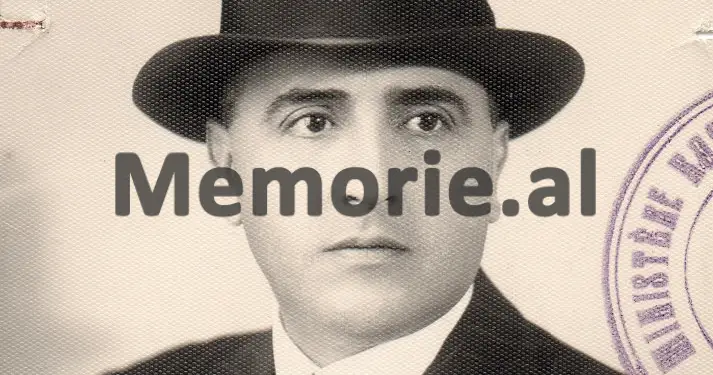
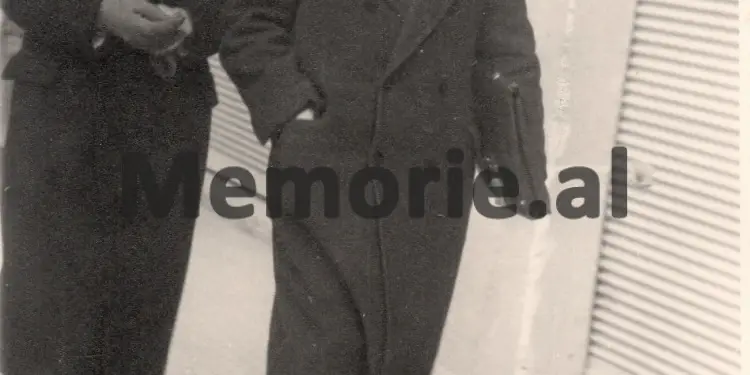
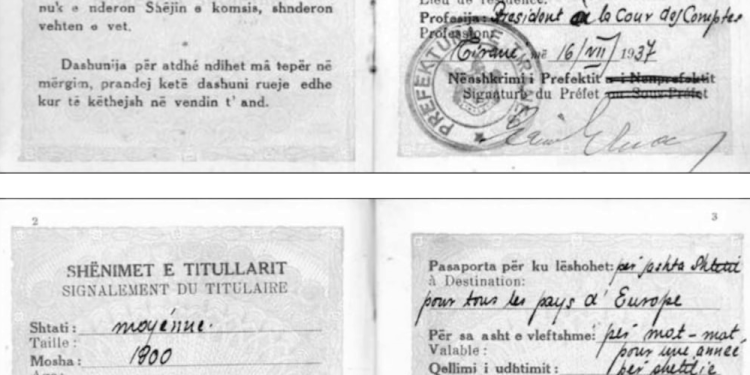
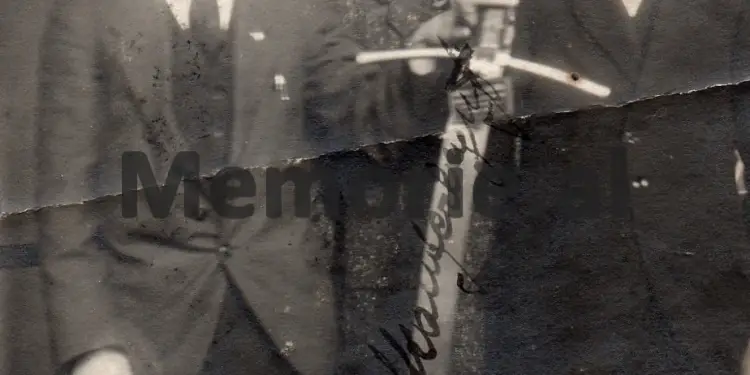
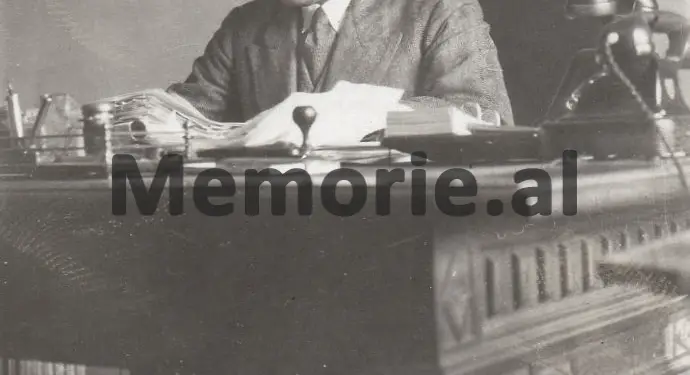
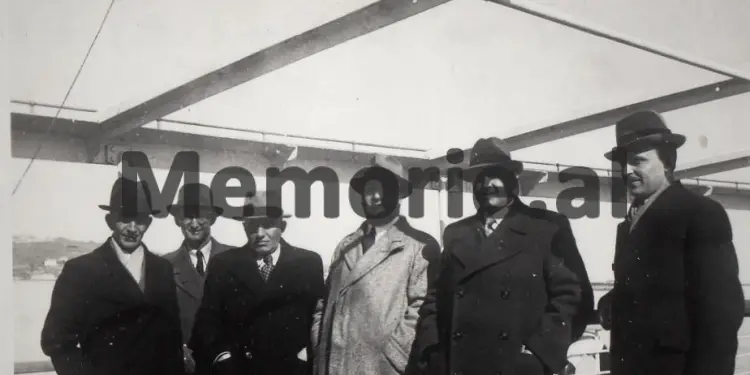
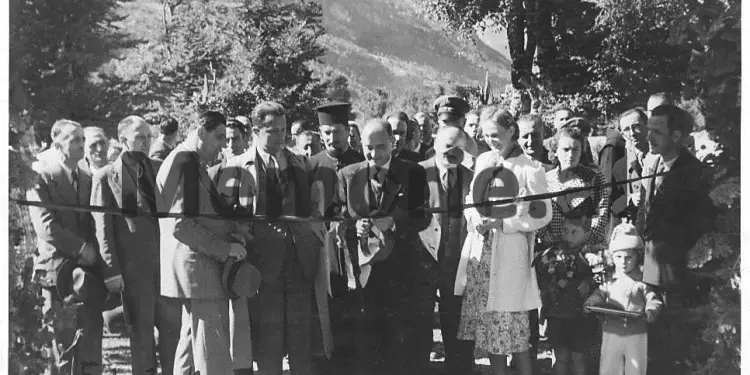
![“When the party secretary told me: ‘Why are you going to the city? Your comrades are harvesting wheat in the [voluntary] action, where the Party and Comrade Enver call them, while you wander about; they are fighting in Vietnam,’ I…”/ Reflections of the writer from Vlora.](https://memorie.al/wp-content/uploads/2025/06/admin-ajax-4-350x250.jpg)


